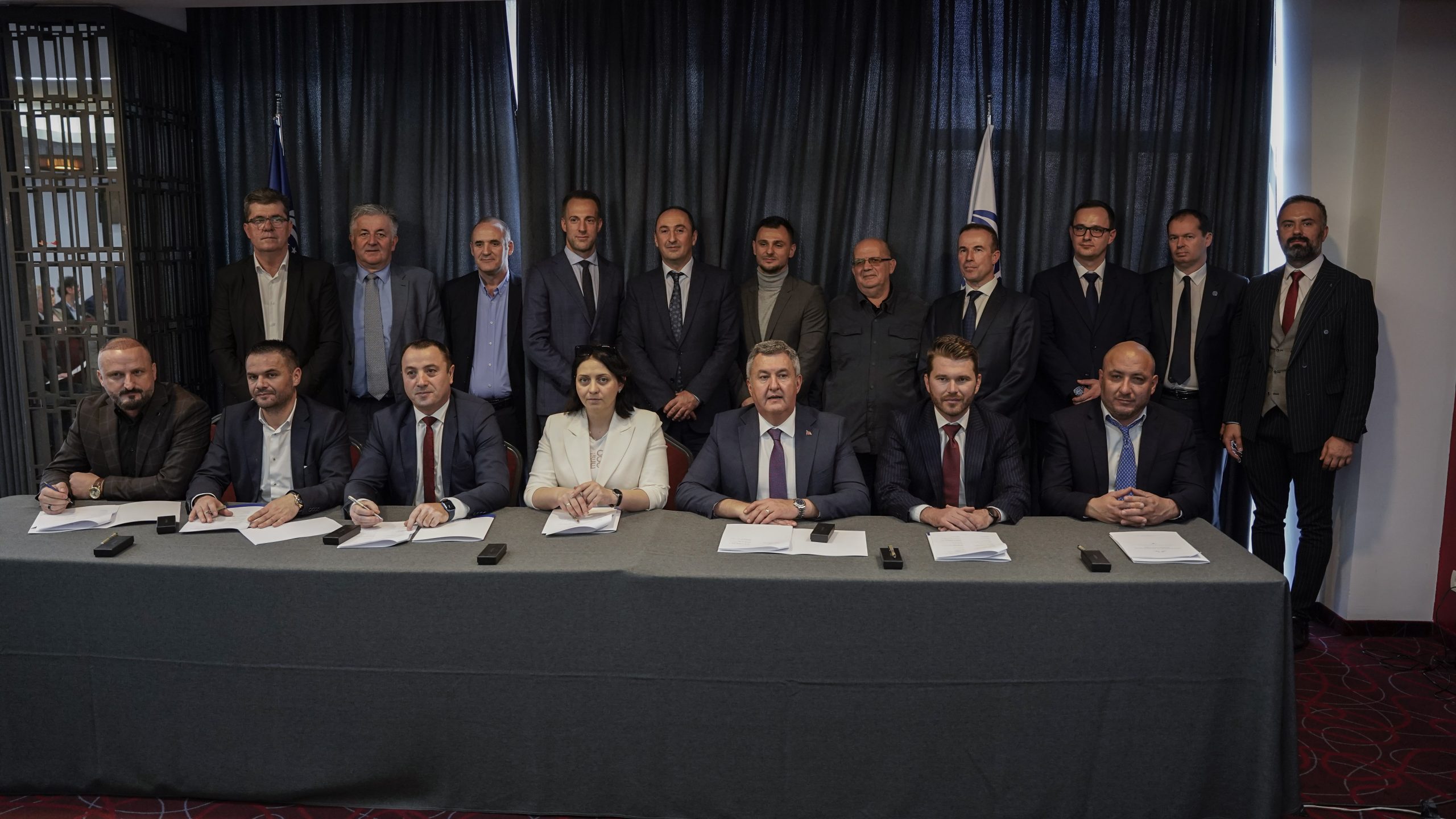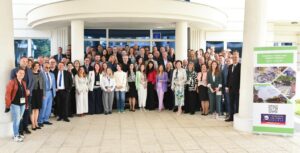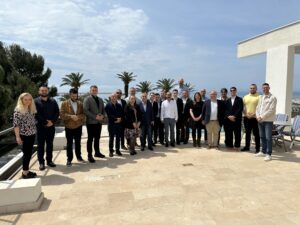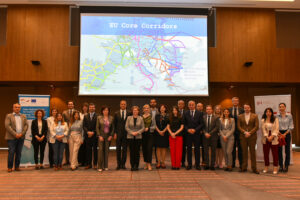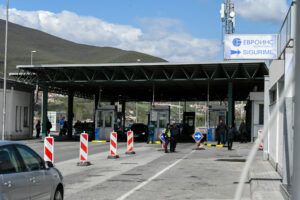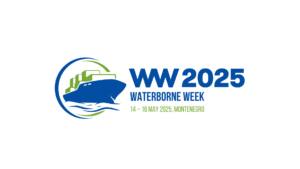Pristina, 21 February – Participants at the Rail Excellence Summit highlighted that the main challenge for development of rail transport in the Western Balkanks is the lack of human resources and an urgent need for additional training and education.
Sixty rail experts, universities, and government representatives gathered to discuss how to keep the talent in the region and spur innovation and technological development in the rail sector. The next step will be the establishment of the Regional Centre of Rail Excellence. The centre will promote the EU standards and norms relevant to the rail sector, as stipulated in ANNEX I to the Transport Community Treaty.
To kickstart the process of establishing the Regional Centre of Rail Excellence, fourteen railway companies and educational institutions signed the Memorandum of Cooperation on Railway Excellence in the presence of Minister of Environment, Spatial Planning and Infrastructure H.E. Liburn Aliu and the Director of Transport Community Permanent Secretariat Mr Matej Zakonjšek.
Regional railway operators and academia/educational institutions took part in a panel discussion focused on rail excellence and the integration of the Western Balkans’ rail system into the EU’s. Moreover, the Summit was a forum to enhance the policy agenda and contribute to a safer, more efficient, interoperable, digitalised, sustainable, and green development rail transport in the region.
Participants voiced a set of policy guidelines:
- Political and institutional support is needed for successful establishment of the Regional Centre of Excellence.
- The synergy/common efforts between all stakeholders (rail companies, educational institutions, government authorities) is a pre-condition. The educational programs at the secondary level and faculties could be adjusted according to the long-term needs of the rail companies as well as with new technologies (digitalisation etc).
- Removing administrative barriers at the regional level is a crucial step. Documents issued by the Centre should be recognised in the entire region.
- Using the best practices from the EU and the Western Balkan to successfully train and educate the rail staff.
- Cooperation with the private sector should be improved. Private companies are willing to offer internships for students as well as scholarships in accordance with their needs.
- Private and public companies, need to self-assess their capacities. Exchange of experts is possible if there is a surplus of engineers and technicians in one company and can be shared. The same principle could be applied to the fleet of wagons and locomotives.
- Friendly environment for newcomers is needed. It included better treatment by the managers in the companies, possibilities for career progress and additional education through training.
- Current curricula in educational institutions should be improved with a focus on practical work in public and private rail companies. This will decrease the time for the adaptation of young professionals after the completion of studying.
- Rail suppliers could think about extending their offer. They can use a positive approach already established by some companies which are performing training and education for all their products in their own training centres or on the field.
- Transfer of knowledge from the seniors to the young colleges should be done before or after retirement. With it, knowledge will stay in the company.
- Exploring possibilities for subsidising women in rail. There is a good example in Serbia, where World Bank has covered scholarships for female rail students at the master’s level degree.
- The issue needs a holistic approach. With the involvement of each regional partner’s national educational institutions and railway companies the Centre of Excellence can capitalise on their resources. Also, the chambers of commerce can contribute the idea with their ideas and resources.
- The idea for the Centre of Excellence can be implemented in phases with a focus on quick wins at the beginning.
- Crucial step forward is securing financing for the determination of the modus operandi of the future Rail Centre of Excellence.

